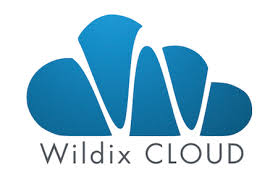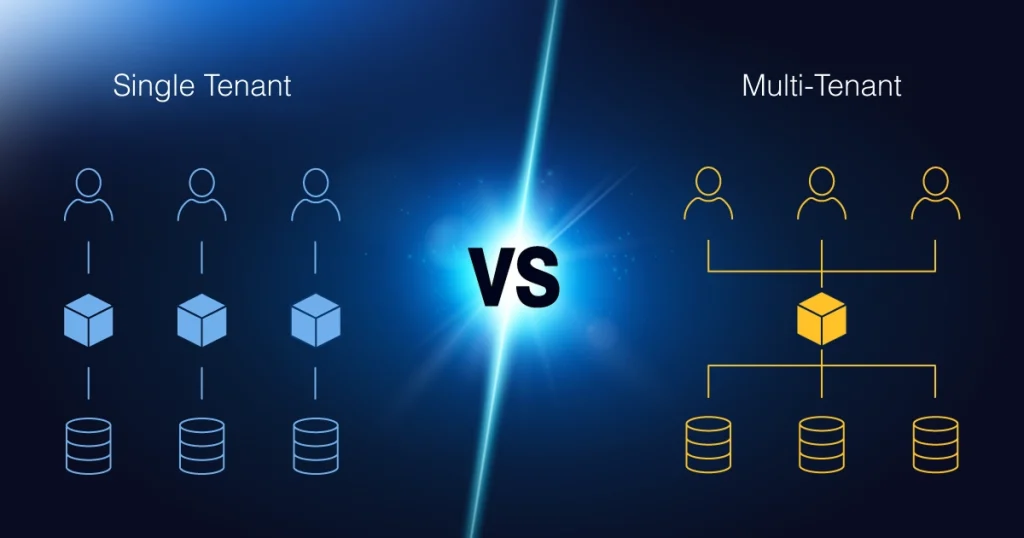You have decided to set up a UC&C hosted offer for your enterprise customers (versus customer premises IPBX), you have the choice between two implementations: IP Centrex and IPBX virtualized.
And you must make the right choice.
 From there, you realize there is no real literature putting into perspective the IP Centrex and virtualized IPBX. Some will say that it is unclear. Let us enlighten and provide you with a few assets to shape your own opinion.
From there, you realize there is no real literature putting into perspective the IP Centrex and virtualized IPBX. Some will say that it is unclear. Let us enlighten and provide you with a few assets to shape your own opinion.
Let’s start with the Wikipedia 2017 definition of IP Centrex, the definition as you will see demonstrates the confusion.
“Centrex is a PBX-like service providing switches at the central office instead of at the customer’s premises. Typically, the telephone company owns and manages all the communications equipment and software necessary to implement the Centrex service and then sells various services to the customer.”
The definition for virtualized IPBX is no different.
So, back to square one…
Some History
Let’s go backward in time to understand the rationales that influenced the two implementations.
The IP Centrex, the successor of Centrex, was designed in the year 2K with the ambition to serve the Telco market. At that time Telco’s required a solution getting rid of the onsite installation of enterprise PBX, managed within the Telco infrastructure and leveraging the indirect sales channels (Private Installers). Those three requirements altogether drove the IP Centrex software editor to develop and implement the concept of Multi-Tenancy.
 At the same time, popped up the first offers of IPBX, as per Asterisk (Open Source that contributed significantly to vulgarize the IPBX for the System Integrators). The IP protocol and onsite installation of the IPBX, the two bases of an IPBX were instrumental to enable advanced CTI functions, deep integrations with CRM and vertical software, and as a matter of fact constituted a compelling solution for a new eco-system of IT companies and System Integrators.
At the same time, popped up the first offers of IPBX, as per Asterisk (Open Source that contributed significantly to vulgarize the IPBX for the System Integrators). The IP protocol and onsite installation of the IPBX, the two bases of an IPBX were instrumental to enable advanced CTI functions, deep integrations with CRM and vertical software, and as a matter of fact constituted a compelling solution for a new eco-system of IT companies and System Integrators.
Two implementations, two barriers.
The main IP Centrex barrier was the high-speed internet access cost, the so-called “last mile.” By definition, all internal enterprise communications were transiting into the Telco’s premises (notwithstanding the Enterprise SBC). At a time whereby the high-speed internet access cost was a significant parameter into the equation of business model, it was a showstopper.
Concerning the IPBX, by essence Single-Tenant and deployed on site, it required a dedicated hardware platform and the presence of a qualified engineer on site.
Nevertheless, both implementations coexisted for the last two decades until major technological evolutions reshuffled the implementation models.
The technological factors.
From year 2K onwards, the massive and deregulated “Marshall Plan” roll-out of xDSL and FFTx access technologies consequently commoditized the high-speed internet access. The main IP Centrex barrier was wiped out.
IP Centrex Software vendors would have thought that good days were ahead, this barrier fading away. Yet, it was without banking the other technological evolution and its impact on the IPBX implementation model.
The other technological evolution was the virtualization. This processing resource being ever more abundant and ever less expensive (at constant computation capacity), the implementation of the virtualization became a reality.

The virtualization, “the enabler” of hosted services
Virtualization became a “must have,” to the point where we now virtualize the networks (Network Function Virtualization) and its components (Virtualized Network Function). The inherited benefits of the virtualization made it possible to install the same instance of a software easily, fast, with the capability to access resource “on demand”, and the whole with costs ever lower. The conjunction of the two evolutions bolstered the “as-a-service” offers.
Follow my thought, IP Centrex was designed at a time where the virtualization was a concept only a few could offer, i.e. only accessible to the Tier 1’s. Software architects of IP Centrex were compelled to elaborate multi-tenant software architectures. All of a sudden the virtualization and high-speed internet access reached a threshold and the IPBX software vendor could take it to their advantage. Hosted IPBX, operated in Data Centers with industrial processes enabling competitive commercial offers became economically viable.
The single-tenant inherent to the IPBX, by exploiting the virtualization gave birth to what I call the virtualized-based Multi-Tenant!
The hosted IPBX was born!
Software or virtual-based Multi-Tenant, IP Centrex or hosted IPBX, what choice?
You are a System Integrator, an Internet Telephony Service Provider or even a Private Installer? Hereunder, you will find some information to help you make the right decision, here are five simple points.
- High-speed Internet Access
Even though it is less and less expensive, nowadays, bandwidth remains a significant cost for the enterprise. IP Centrex by design is mutualized and hosted. For the sake of bandwidth optimization and of the high-speed internet access of the customer, it might be relevant to install an IPBX into a particular customer site, to save the internet access and traffic of the local communications within the enterprise site.
Wildix solution offers the capability to combine a physical IPBX into one or even several sites you select, together with a virtualized IPBX located in the Wildix Cloud, for all the others sites. High-speed internet access is optimized wherever this is a sensitive cost parameter. Budget is optimized. It is the so-called Hybrid mode.
2. Flexibility and Agility
You are planning to undergo a specific integration requiring new features or API command so that you can cater to the needs of your customer. To the Product team of the IP Centrex vendor, it means a project lasting months. IP Centrex is software Multi-Tenant, all the IPBX’s whatever the customer runs on the same software platform, the same instance. The whole IP Centrex platform must be updated with this new version. You will have to argue with your IP Centrex vendor that your request is more important than others requests from your collaterals and convince him to engage in a development that will have a direct impact on his roadmap.
Relying on the Wildix Cloud solution, it is solely a unique instance of the virtualized IPBX that is updated, with no impact on the others IPBX’s, nor the ones of your other customers, nor the ones of your collaterals. The procedure is simple and fast. Wildix leverages the virtualization paradigm which allows the upgrade of a unique instance of a virtualize IPBX and only this instance. Add to this the Agile development methodology, and you have your new version up and running within a couple of weeks.
3. Desk Phones Management
It is the tip of the iceberg the user sees, the desk phone. Desk phones vendors turn out ever more sophisticated desk phones over time, at all price levels. Though they are supposed to be SIP Compliant, IP Centrex vendors must certify the desk phones as there are always adaptations to be done at the IP Centrex level to take into account desk phone specificities. This certification process is costly, as a matter of fact, IP Centrex vendors must choose the brands & models they commit to support and models they stop supporting. In the long term, the customer ends up with a heterogeneous installed-base of desk phones, with various user experiences, numerous user interfaces, user manuals, and different form factors.
Wildix decided to add vertical integration into its offer, hence proposing a comprehensive portfolio of desk phones, softphone, and even headsets. Wildix is committed to improving upon and enhancing the unified user experience, by developing an intuitive, all inclusive, functional design. It is not a coincidence that Apple decided from the beginning to master the hardware and iOS.
4. Resiliency
A misconfiguration from the administrator on the IP Centrex platform may have consequences on all the IPBX’s, hence all the customers. As a unique platform manages all your customers IPBXs, an IP Centrex outage has an immediate impact on all your customers, simultaneously.
Wildix Cloud leans on the IPBX virtualization. Hence an IPBX outage has no incidence or edge effect on the others IPBXs as they are running autonomously on their own IPBX instances.
5. Installation
A strong benefit of IP Centrex is that there is only one installation to be done whatever the number of IPBX’s that are running. Once the IP Centrex is installed, it is a matter of creating and configuring the customers IPBXs.
Wildix has been clever enough to take this virtualization and use it to their advantage. Wildix developed an expertise and competencies in the processes of virtualization automation in the UC&C area. As a matter of fact, installing a virtualized IPBX in Wildix Cloud consists simply of activating an IPBX instance, with a click of the mouse, literally. Wildix Cloud manages the entire underlying processes of virtual machine creation, its configuration, and sizing and resources allocation.
 It is not possible to foresee the future with certitude, but it is always possible to analyze the past and put into perspective the evolution of the technologies…till the next disruption generates an ecosystem turmoil. Wildix understood fast enough virtualization was a disruption. The kind of thing that could bring more productivity for its Partners. Hence Wildix invests and innovates endlessly.
It is not possible to foresee the future with certitude, but it is always possible to analyze the past and put into perspective the evolution of the technologies…till the next disruption generates an ecosystem turmoil. Wildix understood fast enough virtualization was a disruption. The kind of thing that could bring more productivity for its Partners. Hence Wildix invests and innovates endlessly.
You want to see with your own eyes?
A short demonstration is worth a long speech. So feel free to reach out your Wildix sales representative, he or she will be eager to demo Wildix Cloud.







